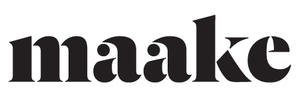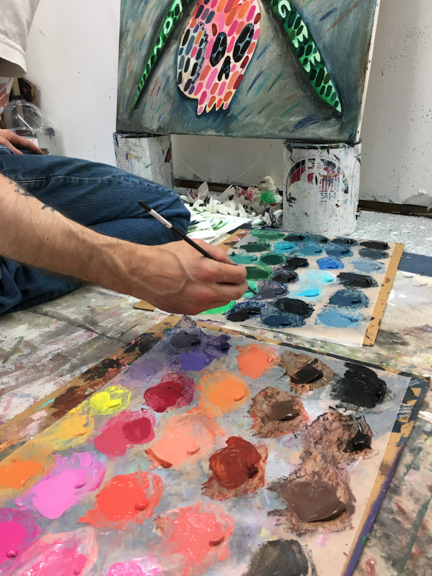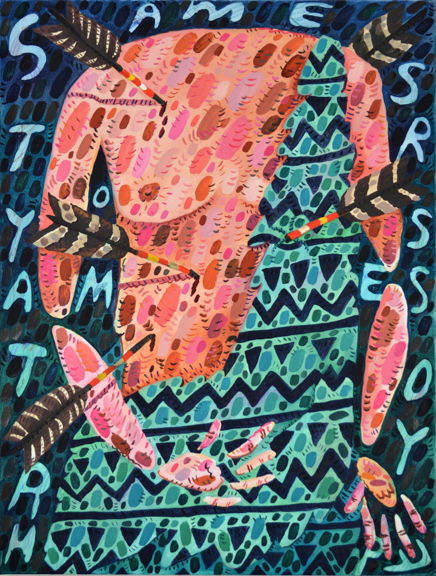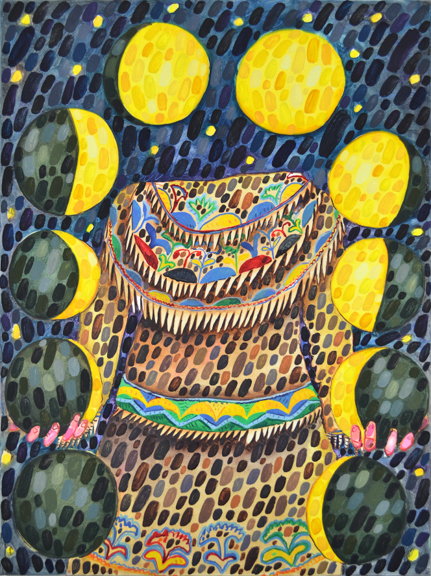Howard Fonda
Howard Fonda is an artist, former educator, father and husband living in Portland. Philosophical and introspective, Fonda’s work expresses a romantic worldview and mystical inner journey. The artist’s work has been exhibited throughout the United States and abroad.
STATEMENT
The difference between representation and abstraction is like the difference between clouds and sky. The origin of the debate is more useful than the debate itself. I see painting as a philosophical sanctuary and spiritual outpost. I embrace painting’s traditions and limitations, finding comfort in them. Painting is a vehicle of contradiction adept at conveying the hubris of, and understanding of, existence. Painting is poetic and transcendent. I find painting an articulate means of exposing a range of emotion, both rational and irrational. Both rational, and irrational experience, define existence. Genre and form are choices like any other, used to articulate a cultural perspective and historical context. Craft, form and content are equivalents. Painting relies on truth and beauty. Mystery begs to be demystified. Definitions beg to be redefined. Judgment, itself, can be good or bad. Both “good” and “bad” can be good or bad or both. Judgment has less to do with art than one expects. Consideration and empathy are more useful. Content is form. Form is content. Academia, “institutions”, and “the market” are all equivalent. In these times, critical analysis of art must contain a measure of academia, “institutions” and “the market”, as well as articulated taste. The value of art is never fixed and is contingent on context. Art is everything and nothing. Everything is everything and nothing. Nothing is everything and nothing. Knowledge is not wisdom. Wisdom is more important than knowledge. Creating meaning and finding meaning are two different things. I am primarily interested in finding meaning.
Howard at work in his studio.
Q&A with Howard Fonda
Questions by Emily Burns
You make small drawings as well asa large paintings, and there seems to be a relationship between the mark-making for both. Are the drawings also studies for the larger works?
Mark, and on some level touch, is at the core of my practice. Direct and thoughtful, playful and thoughtless - the marks of both the drawings and paintings utilize the same vocabulary, though the medium dictates the voice. My work is really rooted in drawing and the intimate mark-making that drawing offers.
I rarely make studies. If I do have a drawing and painting that look similar, it's usually the painting that came first with the drawing serving as an adjacent memory.
Can you tell us more about your process from start to finish, both for making the drawings as well as the paintings?
The drawings are often more direct and loose - immediate and intuitive. The paintings tend to have more content, or intention, worked up before I start. I keep lots of sketchbooks with loose thoughts, random ideas, and inspirational doodles. In an attempt to find meaning I mull over ideas, mash disparate thoughts together and make post-it sized compositional sketches before I begin. Once I've committed to make a painting I try not to work too much up. I loosely grasp my intention and allow for things to happen in the act of painting. I create an informal framework that I can then improvise in. There is a direction, but also space...it's just jazz.
Your recent large works combine oil paint and colored pencil. How do the two media interact and co-exist on the surface? Have you always working with this combination?
I've toyed with combining drawing and painting elements since my first painting class back in undergrad. It just seemed natural and logical to me. But all these years later, I feel like I'm finally comfortable linking mediums. I can finally articulate myself with confidence, nuance and dexterity.
Your work smoothly oscillates between figuration and abstraction, and often includes text. Can you tell us more about how you choose subject matter? Is navigating the choice between them ever a challenge?
Representation, abstraction, text... they're all equivalents. I try to let the content dictate the form. There are paintings that are narrative driven and others that start with a simple mark. In some, text is the driving force, in others the text is tertiary and serves to define space or simply meet compositional needs.
On a whole, the subject matter is driven by my personal fascination with love, existence, meaning and truth - big, well-worn themes that I personalize and play out in my humble little studio. It's all bit self-indulgent, but it helps me make sense of this crazy world.
You have mentioned in a previous interview that you prepare for making a painting for weeks prior, and then complete one work in a day. Have you always worked in this way? What draws you to this approach, and what are some of the challenges and benefits of working this way?
I've been working this way for a long time - over 10 years! It all started with some convoluted post-grad school soul-searching. I wanted to make the work direct and honest. I wanted viewers to be able to see the process and eliminate a hierarchy of material layers.
Everything is essentially on the same plane, laid wet into wet. Mistakes can't simply be covered, they must be be addressed and integrated into the composition. I came to enjoy the tension, the tight rope walk of failure. In the end, the painting is either a success or trash. It's either kept or painted out. And I've painted out more than I care to recall. I'm really drawn to work that risks or exposes failure.
Your style is very unique and very you—how long have you been working in a way that you feel is recognizable and relates to your current body of work?
I suppose it's come in stages over the years. Since we moved to Portland in 2011 I feel like things have really come together. When it comes to painting, I can be a bit of a hermit and insecurity can sometimes get the best of me. So, it's been great for me to unencumbered by the influence of the coasts—of course I'm up on the NY and LA scene, the gossip, the cycle of trends, but... Here I am able to live a simple, fulfilling life and step out into my little philosophical sanctuary and just be me. It's easy to really let loose and dance when no one is watching.
Are there any common themes in your most recent body of work? What are you thinking about the most these days?
I'm still wading through the abyss of the themes I mentioned above. I was a history major in undergrad, so I tend to look at situations with an eye on the past - particularly the maligned, the powerless, the persecuted. With some pause, I'm also drawn to things that are distinctly "American"—Transcendental thought, jazz, African American history, and the indigenous peoples of this part of the world.
I grew up in a little farm town in western New York and owe a lot to the rich and complicated history there. My family collected and dealt antiques. I learned very early on that objects had meaning and history was more grey and more real than any public school text book. I'm indebted to the little county museums and historical sites that introduced me to a world that included the Underground Railroad, women's fight for civil rights and the Haudenosaunee. Discovering Boogie Down Productions and Public Enemy on late night college radio on Tuesday nights didn't hurt either.
So, uh, the themes run deep.
What is a typical day like for you?
On a good day, I get up earlier than is civilized to help get my wonderful children off to school. I then take an absurd amount of coffee out to my studio and set about the day. I usually don't know what I will paint until the night before or the morning of. I try and trust the moment and my gut. Then I'll turn on some Grateful Dead or Ravel, peep some "notes" to refresh my memory and spend about an hour mixing up a palette for the day. With the stage set, I do my best to be present, think only when necessary and respond rather than react. If I'm lucky, I'll emerge 10 to 12 hours later with something worth keeping. Then, I'll head indoors and thank my extraordinary wife for allowing me the time to be selfish. Finally, I'll spark a spliff and ponder the days efforts until I realize the stench I smell is me... At which point I shower and settle in for some mind-numbing TV. Then I do it all again a few days later with mixed results.
Who are some of the artists that you look at the most often or most recently?
Oh man! There are so many amazing artists.
Most often: Peter Doig, Mari Eastman, Austin Eddy, Maureen Gallace, Shara Hughes, Karen Kilimnick, Judy Ledgerwood, Rebecca Morris, Laura Owens, Sophie Von Hellerman, Cy Twombly, Sue Williams...
Most recently: Katy Cowan, Chelsea Culprit, Alicia Gibson, Annie Hemond Hotte, Nikki Malouf, Monique Mouton, Adrianne Rubenstein, Emily Mae Smith, Alice Tippit, Tricia Trieb...
What are a few of the stimuli or experiences that get you really excited to get back into the studio, particularly if you have been experiencing a spell of tepid inspiration?
I get inspired by pedestrian profundity. With two little kids and a superhuman wife I have no shortage of everyday fodder. I am fortunate to face infinite love, endless curiosity, boundless energy, and knowing forgiveness, on the daily. I also get to test my well of compassion and fail again and again. Art is about life and I am very lucky.
I don't work in series or for shows - I just work, and fortunately I am always in need of practice. Even the "dry spells" are informing. I just try and ride each wave as long as I can and then admire the ocean while I wait for another.
If epiphanies occur for you, where and how do they usually happen? Can you conjure them by planning for this catalyst?
Epiphanies definitely occur! Unfortunately for me, there's no planning for them. Which is just as well—I'm a terrible planner.
Is there anything that significantly supports or destroys your groove or energy in the studio?
Negativity and judgment are the only beasts I battle when in the studio....And maybe time. Yeah, time, too.
Has there ever been a book/essay/poem/film/etc that totally changed or influenced you? What are you reading right now?
i: six non-lectures by e.e. cummings was a game changer, as was Huxley's Doors of Perception. Bukowskis poem "I met a genius" and Langston Hughes "Luck" both have a profound effect on me. I never get tired of Easy Rider, Do the Right Thing or Apocalypse Now, either.
I have so many books started it is embarrassing. Did I mention we have two kids? A selection in no particular order:
Writings, Agnes Martin ( I've been reading this book since 2008 and still haven't finished it. I reread and read a couple pages every few months. It's so powerful I never want it to end.)
The Myth of Sisyphus, Camus. (I've been reading this since 2010. Unlike Agnes, I reread this because I can't fucking understand this god damned thing and really want to.)
Nature Writings, Muir
Henry David Thoreau, Harold Bloom
Theft by Finding, David Sedaris
The God Delusion, Richard Dawkins
The Boys in the Boat, Daniel James Brown
Any advice from your past that has stuck with you or helped you?
Trust yourself. Be honest. Be kind.
What has been one of the most challenging aspects of your career as an artist so far?
I've had my share of drama in the game, but the most challenging obstacle remains constant - me.
What do you listen to while you work? Is this an important part of being in the studio?
I almost always have music or a lecture going in the studio. Silence is important, too, but usually only occurs because a record ends and I'm too "in it" to get up. I really like to listen to albums start to finish and live recordings. The Dead, Thelonius, Willie, Duke, Dylan, Neil, and a nice dash of early 90's socially conscious hip hop are in heavy rotation.
How do you navigate distraction in the studio and in life?
The biggest distraction is often the studio itself! Family is very important to me, and I work hard at being a present, available and engaged partner and parent.
Do you have any other news, shows, residencies or projects coming up?
Lots of fun things on the horizon! I'm very fortunate and very thankful.
Thanks so much for sharing your work and talking with us!
To find out more about Howard and his work, check out his website.













